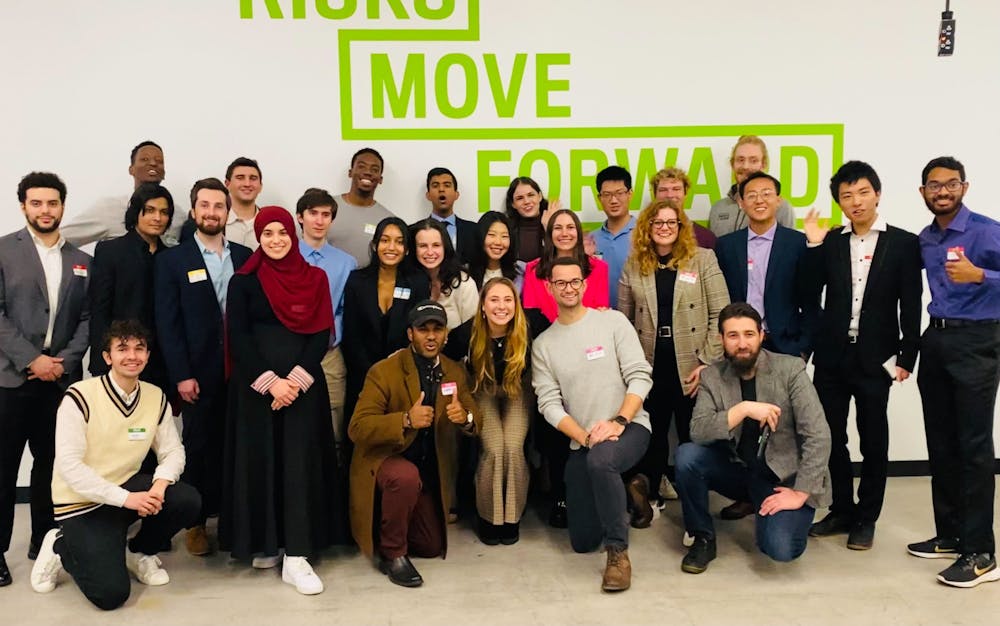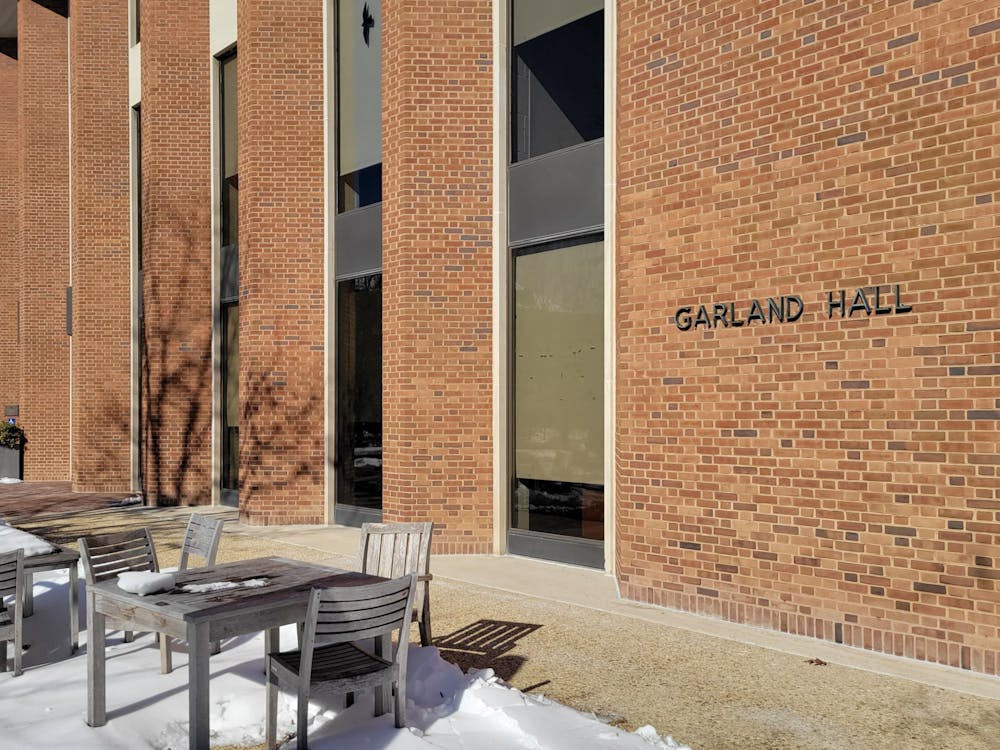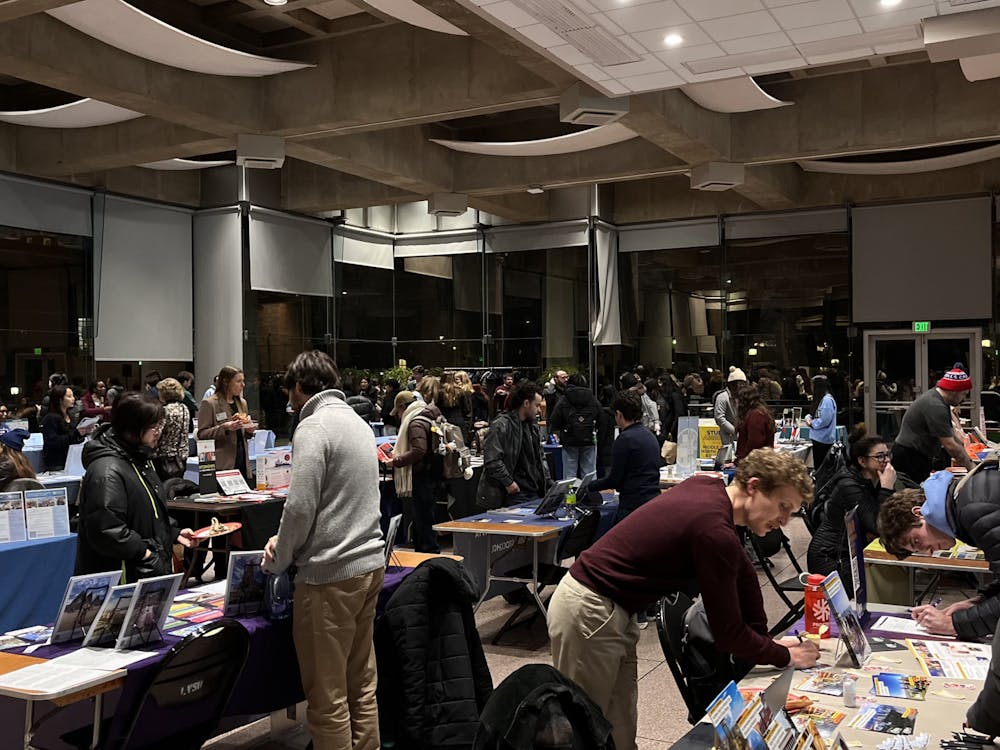CurveAssure, a student startup creating a spine monitor device to identify the best treatment and pathways for the patient, won the grand prize at the FastForward U (FFU) Fall 2022 Fuel Demo Day.
CurveAssure is a startup founded by Hopkins graduate students Antony Fuleihan and Evan G. Haas and Dr. Nicholas Theodore, the director of the Neurosurgical Spine Center. The original team also consisted of recent graduates, Audrey Goo and Di Lu, who left the venture after graduating to pursue other interests.
The team’s product is a spine monitor device that can give spine surgeons the data necessary to make informed clinical decisions to treat their patients. The device is specifically targeted towards adult spinal deformity and spinal degeneration cases. These cases can be treated in many ways, including surgical options, non-surgical conservative options and physical therapy.
Haas explained the team’s purpose in creating the device in an interview with The News-Letter.
“It's very hard for doctors right now to be able to figure out exactly what would be best for that patient. We're trying to help with that process by analyzing the spine with our device and then providing recommendations for potential treatment,” he said.
The team landed on this idea through using the spiral innovation model while researching at the Center for Bioengineering Innovation and Design (CBID) under the mentorship of Youseph Yazdi, the director of CBID.
Fuleihan discussed the launching of the team’s project as a startup in an interview with The News-Letter.
“We were working on this project for research, but it had so much potential for actually improving patient lives and towards actually being a solution that was needed in the healthcare system,” he said. “Over the last year and a half, we both decided that we want to take it forward and work towards actually bringing it towards the hands of doctors and patients.”
With this goal in mind, the team applied for the Fuel Accelerator track, a non-dilutive, extracurricular accelerator that runs each semester to fund Hopkins student startups. This fall, nine student startups were selected through a written application and an interview.
In an email to The News-Letter, Josh Ambrose, FFU director of student ventures, explained the preparation process.
“The teams meet twice a week, engaging with FFU staff, student mentors, and a robust list of alumni and ecosystem mentors and speakers (18 this semester!) In addition, each team connects with at least 3 additional mentors for 1x1 advising,” he wrote.
At the end of the semester, the teams showcase their startup project to judges on Fuel Demo Day. At this year’s Fuel Demo Day on Dec. 2, over 120 people attended in person and over 80 people attended on Zoom to listen to the nine teams share about their startups.
Last summer, CurveAssure participated in the Summer Incubator, a six-week summer accelerator at FFU. Haas reflected that they received insightful advice and useful business learnings from the program. The two applied to the Fuel accelerator to see if their idea had potential to become a company.
The co-founders both highlighted that one of the best aspects of Fuel was engaging with passionate students.
“The thing that I really love about the FFU system is having that ecosystem of like-minded individuals working in their own startups and being able to bounce ideas off of them, give them feedback and get feedback from them,“ Fuleihan said. “Being able to learn from your colleagues and your cohort was fantastic.”
He added that the practical advice from experienced FFU mentors, Hopkins alumni who have completed the startup cycle, provided invaluable help as well.
Haas described that the guidance was focused on developing their business as opposed to just the research.
“Getting a medical device to the market takes a lot. Fuel helped us in really understanding those steps and where we need to go. That was very big from the accelerator standpoint,” he said.
In addition, through their program and customer discovery process, they had the opportunity to get feedback on their product from doctors at Hopkins.
According to Fuleihan, Demo Day presented a new challenge for the team outside of the technical lab.
“It was a lot of weeks of refining our pitch deck and making sure that we can tell our story in a convincing way as well as for us, as engineers, de-technifying it because there's so much technology within the development that is very difficult to convey,” he said.
The two co-founders aspire to take the initiative forward as a company. Haas outlined the team’s current work to further validate the technology.
“[The experience at FFU] really showed us that there is a potential that this could be a startup. It's given us great preparation, an amazing network and it really helped us understand the pathway to move forward very fast,” he said. “We really appreciate all of the experienced mentorship we’ve gotten from Josh Ambrose, Leana Silverberg, alumni and other mentors at FFU. We're hoping that we can use it as a springboard to take this forward once we graduate.”





